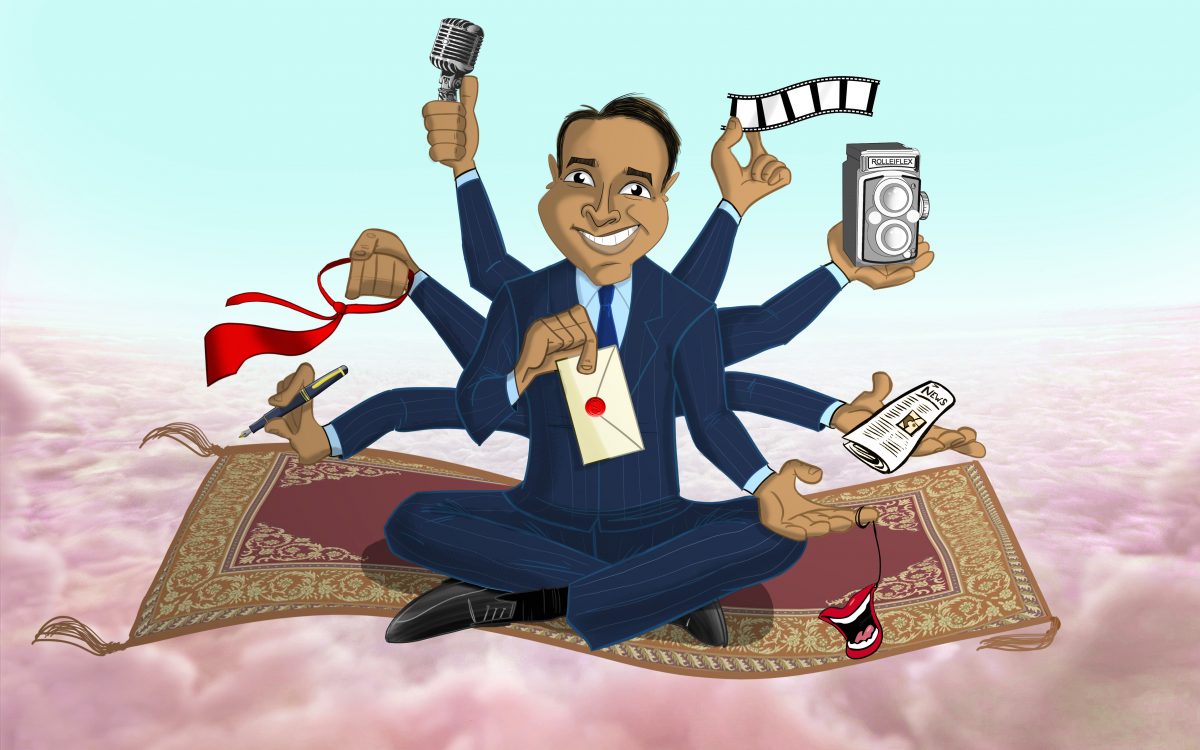
The importance of being a “baniya.”
 A few years back, my teenage son had to make a trip to New York from Boston. I discouraged him from driving and convinced him to take one of the cheap buses for $35 round trip. Since I was busy, I told him to make his own booking over the Internet. The bus company had a promotion for online users. If you bought a round trip ticket, the one-way ticket from Boston to New York would be only a $1. All you had to do was click on the e-coupon button on the website. However, my son refused to take the discount and paid full price using my credit card.
A few years back, my teenage son had to make a trip to New York from Boston. I discouraged him from driving and convinced him to take one of the cheap buses for $35 round trip. Since I was busy, I told him to make his own booking over the Internet. The bus company had a promotion for online users. If you bought a round trip ticket, the one-way ticket from Boston to New York would be only a $1. All you had to do was click on the e-coupon button on the website. However, my son refused to take the discount and paid full price using my credit card.
When I asked him for the reason he said he felt cheap buying such a low-fare ticket. I said, “Cheap! You are Indian. You are supposed to be cheap!” What was he trying to do? Shatter the image and stereotype that Indian-Americans have worked so hard to build as a model of frugality! Our generation has raised the bar on parsimony to such a new high, that the other Asian -Americans and Jewish-Americans admire us and often use our community’s examples to teach their own children.
ALSO READ: Wag More, Bark Less (June 16, 2018)
When my father heard about the incident from my brother, he called me from India distraught. He told me that he was so worried that he couldn’t sleep all night. He said, “Yeh ladka baniyon ke naam per kalank hai. This boy has brought shame to our merchant community.” I told him that I shared his concerns and asked if our ancestors would ever forgive me for raising my son that way.
How could my own son, my own flesh and blood, betray me like that? I just couldn’t figure out where my wife and I had gone wrong in his upbringing. I remember taking our kids to the food court at a nearby shopping mall for Chinese food. After ordering our vegetarian favorites, Buddha’s delight, Szechwan Tofu, Spicy Eggplant and Vegetable Lo Mein, we would all sit down. After a few minutes, I would send him back to get an extra fork. I would secretly follow him so I could see the dirty look from the owner and hear him grumbling. When he would bring back the fork, he would have tears in his eyes. I would console him and try to make him understand that the owner was following his dharma; not only was he being considerate for the environment, he was trying to save a couple of pennies.
ALSO READ: Mr. Bania: The United States of India (May 19, 2018)
I have tried to instill in him similar values of thriftiness by demonstrating acts of conservation. There is an old Indian adage that with multiple drops of water, you can fill a clay pot in a course of time. I have patiently shown him how you can fill a 16oz Heinz ketchup bottle with 240 packets of Taco Bell sauce. Obviously these indirect gestures were not enough. Based on the bus experience, I decided to have a stricter regimen and more explicit communication with all my children to instill the Bania values.. When I go to Starbucks with my wife and three children, rather than ordering five small cups of Lattes, I order one extra large Latte and get four extra cups. I give an extra $1 tip for the server.
We go to a popular restaurant in Los Angeles, which offers a lot of organic dishes, including exotic salads, pizza and pasta. There is a special discount card that my youngest son Neil got from his high school that is honored at the restaurant. It offers one starter item for free with that card. When we sit down at the restaurant, we have the kids vote which starter item to order. Initially they would pick the items based only on their taste preference. But with a little more training from me, they now pick the most expensive items such as mac and cheese ($14), pizza ($13) or cabbage rolls ($12).
ALSO READ: Mr. Bania: Raajeev I. Aggerwhil: ‘Smart Indian Weddings’(April 18, 2018)
I share stories about my Bania relatives and their creative ways of saving money. I told the legend of my uncle firing his maid because she threw away the carrot pulp after running it through the juicer. When she explained that she already ran it through the juicer three times, he said he was still working on the pulp from 1992. Another story was when my brother went to his house and the room was dark. My uncle gave him several money-saving tips and explained that the room was dark because “sound and light are mutually exclusive. Sound doesn’t need light’s assistance to travel. If we are talking casually I can hear you fine – I don’t need to see your face.” Then for the final capstone of the lesson, my uncle asked my brother to light a candle. My brother lit the candle, saw my uncle and quickly closed his eyes. My uncle continued the lesson, “you see if you are sitting in the dark, you don’t need to wear clothes. They depreciate unnecessarily.” Even though these stories might be exaggerated over time, they are as valuable as the Panchtantra stories to inculcate the Bania values.
I am trying hard to get my kids to learn about Return on Investment (ROI) and the pricing strategy of the merchants. The other day, my middle son and I were at Whole Foods because I want them to eat healthier. Eating organic fruits and vegetables is cheaper in the long run because it offers a better ROI. Before paying for our lunch, I decided to weigh our boxes. My son’s lunch would have come out to $18.13 while mine would be $3.23. Shocked, I asked him, “What did you put in there? Gold bricks?” He said, “You told me to get fruits and vegetables, so I got melon, avocado, and mixed fruit salad.” I said, “That plan was at the unlimited buffet bar at Soup Plantation. Here you are paying $9.99 a pound.” Then I pulled a napkin to draw a chart. “See, the strategy is 80% of your items should be low-density items such as Spinach, Kale, Arugula, 20% of the items should be medium density items such as olives, mushrooms and bell pepper. And you stay away from high-density items such as melon, cantaloupe, tofu and avocado. If you really like those items, go to the produce section and buy a whole melon or avocado, and mix it in the salad later.
ALSO READ: Mr. Bania: Raajeev I. Aggerwhil: ‘To Frugality and Beyond’(September 24, 2017)
One of the sayings in the Bania community I live by is, “The easiest thing in the world is to spend. The hardest thing in the world is to save.” I am hoping with small gestures showing some money savings techniques and sharing legends of frugality about our ancestors, I can instill the true Bania values into my kids. So the next time they find an amazing deal like a $1 bus ticket from Boston to NY, they will take great pride in clicking that coupon! My family legacy is at stake and my relatives are watching.
(Los Angeles-based comedian Raajeev Aggerwhil has starred in Nickelodeon’s TV show 100 Things to Do before High School and also acted in the film based on the television series. He is a frequent contributor to The American Bazaar. He can be reached via Twitter, and Instagram.)
RELATED:
Comedy allowed me to officially offend everyone equally, including myself: Raajeev Aggerwhil (June 20, 2017)
Stand-up comic Raajeev Aggerwhil tickles the funny bone (June 20, 2017)



